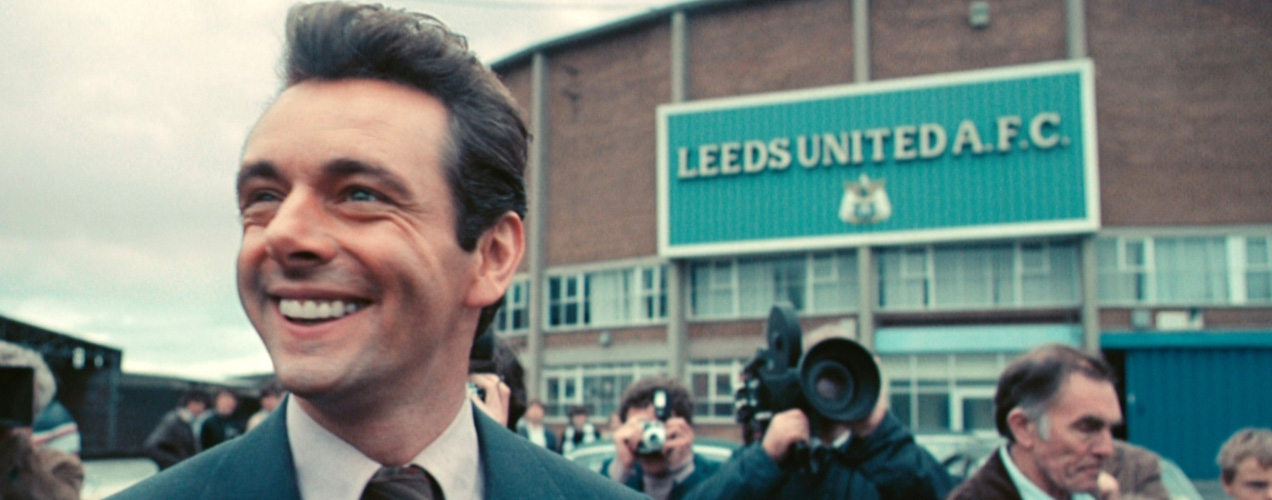2009 / Tom Hooper > Contrary to most expectations, this isn’t about Manchester United. It’s about the United that used to be the talk of the show before Alex Ferguson paid off the referees: Leeds. Starring Michael Sheen, whose performances in The Queen and Frost/Nixon has made me believe he’s one of the most under-appreciated actors of today (even before discounting Underworld), The Damned United tells the story of Brian Clough, a cocky, hot-headed manager who takes Derby County and Nottingham Forest to the highest levels of football. The whole show is completely and utterly enjoyable, especially if you’re appreciate the competitiveness present in professional sports. The interplay between Sheen and his fellow actors, including an especially swell performance by Timothy Spall (of Wormtail in Harry Potter fame) is especially touching. Walking away, it does feel a bit too neat at the end. Hard to fault Hooper for his choice of time period to portray, but some things (like Clough leading Nottingham Forest to back to back Champions League wins) feel too important to leave out at the same time.
Category Archives: Europe
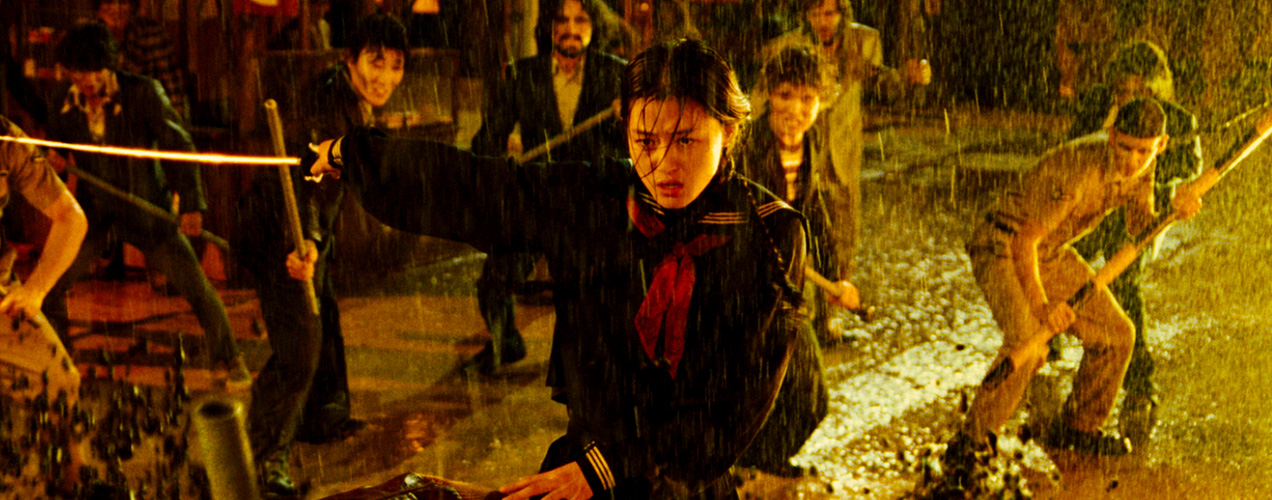
Blood: The Last Vampire
2009 / Chris Nahon > Tragically boring. When you’ve got the confluence of vampires, live-action anime and Korean megastar Jeon Ji-Hyun’s English-language debut, you expect at least something. Not necessarily storytelling or character development, but at least lots of awesome fights and maybe some skin. But there too, Blood fails. What a terrible intro to Gianna Jun (as she’ll be known stateside), who gained much of her fame through her hard-knock, lovable lead in the rom-com sensation My Sassy Girl. The lack of adequate roles for well-known Asian actresses continue to leapfrog their abilities, and unless you count Gong Li’s serviceable turn as a half-Chinese, half-Cuban drug-mama in Miami Vice, the category continues to remain empty and shameful.

Mammoth
2009 / Lukas Moodysson > Did Inarritu ghost-direct this? It’s got Babel-lite all over it. The whole thing is so predictable, so messy, so amateur, I’m frankly a bit troubled. Maybe Moodysson just wanted to try his angle at the liberal apology for globalization, but this is too shallow and too simplified. As much as I hated A Hole in My Heart, I’d prefer see more risky endeavours than this kind of mediocrity.
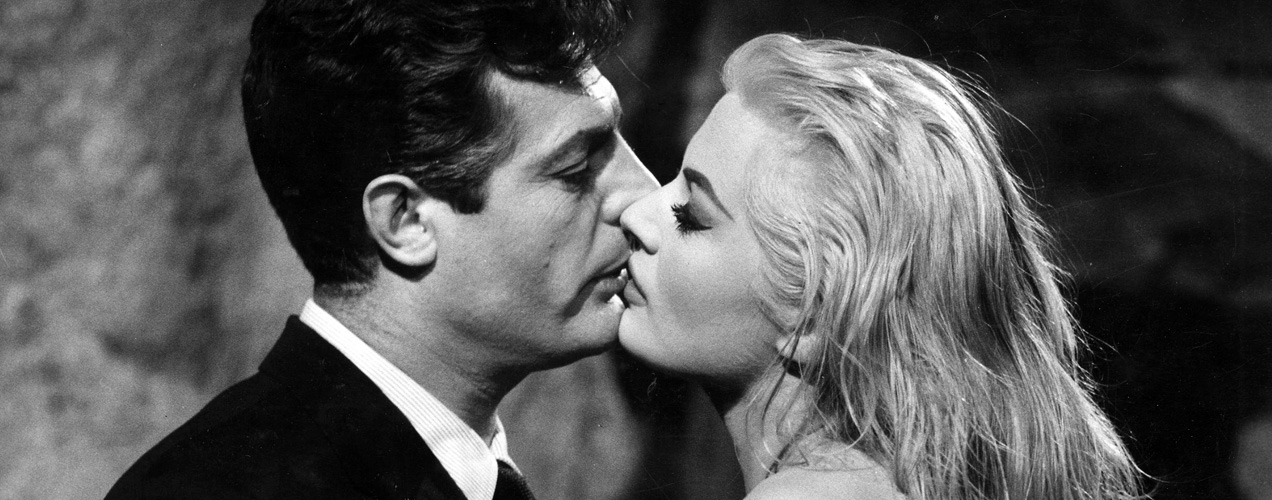
La Dolce Vita
1960 / Federico Fellini > Movies about one’s own person, as to say how a person matures, even in older age, how one adjusts to aging itself, how to basically understand life and one’s position in that life, these are notions that have been tackled over and over in cinema. Such a view of humanity is usually inspected in a smaller scope, observing the nuances and tackling singular topics. But more often than not, this lack of scope leaves too many gaps from the palette of life’s emotions.
Fellini, though, captures everything in La Dolce Vita. There are no other ways to describe this than with the kind of love and admiration one has for the medium itself, and how glad I am to have finally witnessed the kind of work that makes watching cinema a necessary part of life. It’s as if Holden Caulfield grew up and just happened to be Italian. From head to toe, the superficial glitter slides off to always reveal a piece of the puzzle. The world around him seems to be a joke, but at the end, nobody’s laughing. When you’re not laughing, is it because the joke wasn’t funny? Or is it because the joke’s on you?
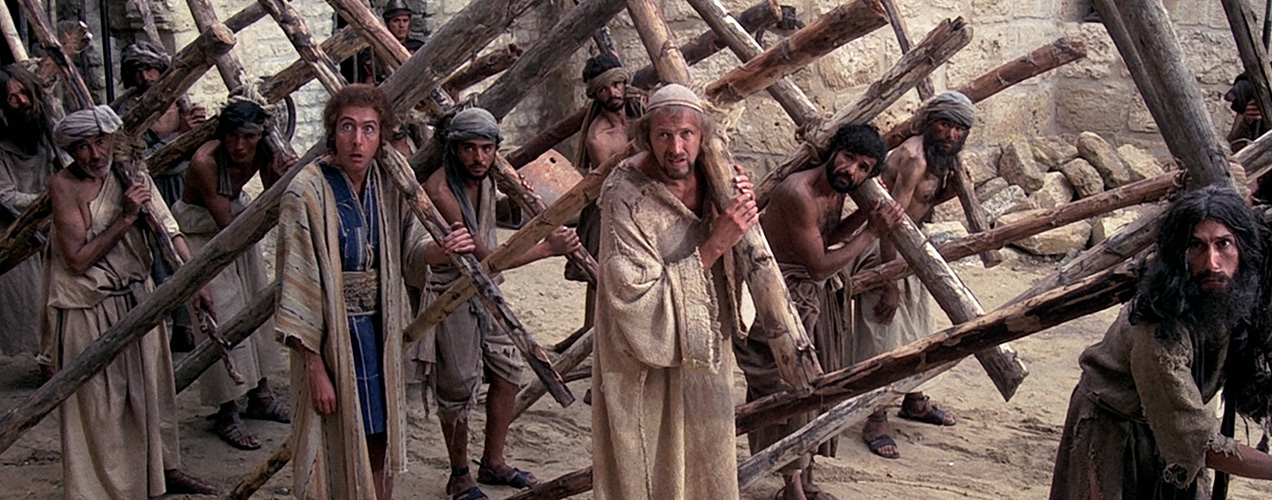
Life of Brian
1979 / Terry Jones > There are a lot of renowned comic troupes in the world, and often they exist in variety because different audiences clamor for different styles of humor. Well, count me out of the Monty Python crowd. This isn’t my cup of tea. Life of Brian definitely had moments of ingenuity, but far too often it missed and felt repetitious. Moreover, when the joke’s on someone who’s made into a punching bag (as these characters are), the intended satire can lose a lot of its charm.
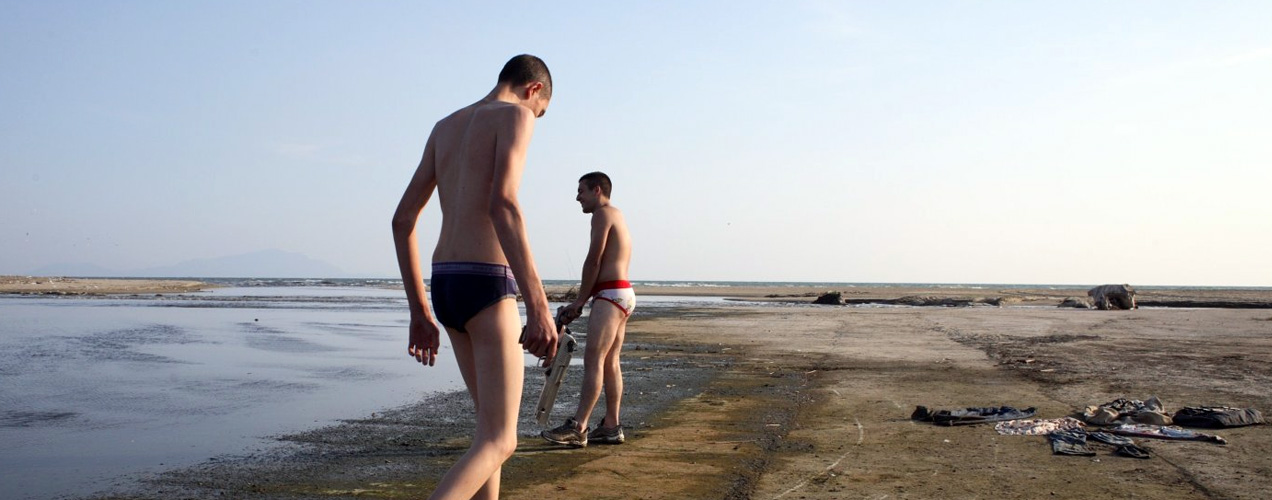
Gomorra
2008 / Matteo Garrone > Gomorra is a deeply rich film that lacks the sensationalist touches we often see in mafia dramas. Remember how Heat was a poetic version of cops & robbers? Well, this is what you get when you strip out the loud violence and criminal glamour. The multiple storylines seem a bit daunting initially, but they end up really impressing on the basis of their meticulousness. Based on the book by Roberto Saviano, Garrone’s adaptation really works to stress the capitalist reaches of the modern Camorra, the Naples-based organization on which the works are founded upon. From the typical youngster wannabes to the world of waste disposal, the film is a nuanced treat into the daily ongoings. It’s so real that Saviano himself has been forced into exile due to fear of death. This is impressive stuff for the patient viewer, and almost honorable because it doesn’t build up the lifestyle, but rather puts it in perspective from both local and global viewpoints.

Chaplin
1992 / Richard Attenborough > Considering the spotlight on Robert Downey, Jr. post-Iron Man, it’s shocking that more people haven’t brought up his magnificent performance in Chaplin. Even now, watching Charlie’s flicks, I can’t help but substitute in Downey’s face without a worry. At age 27, he mimicked the lives of one of the most magnetic performers in cinematic history yet it feels as if no one remembers. Some of this blame arguably goes to Attenborough for taking an unorthodox approach to a biopic by focusing on Chaplin’s love affairs to progress the storyline, which led to slightly uneven pacing and treatment of his work as almost secondary. While this may have resulted in mixed critical response, there’s no denying that his life did indeed revolve around women, and that the longing for his first love led to multiple marriages to younger and younger women. Furthermore, there was at least 12 minutes cut from the director’s version and almost two hours left on the cutting floor altogether. Who knows how much better this would have made it, but even as it stands, it’s an incredibly enjoyable piece about a fascinating icon of culture and is worth viewing to get a glimpse into him and his works as well as the ridiculousness of the McCarthy era.
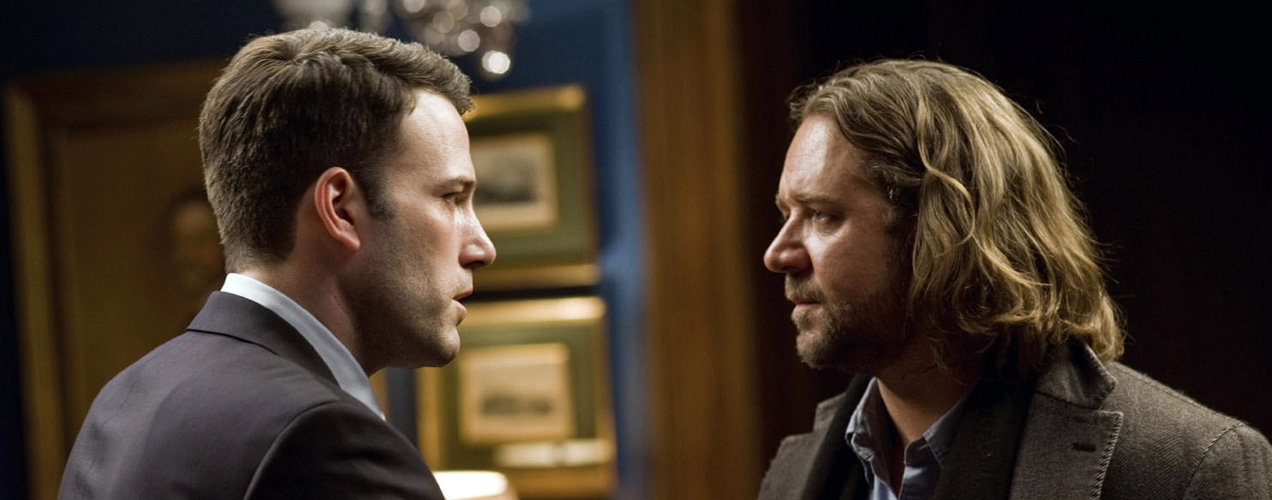
State of Play
2009 / Kevin Macdonald > Frankly, there was no way this film could make me happy. The original 2003 BBC miniseries on which this is based is one of my single favorite pieces of television ever. It’s clever, thrilling and intelligent. John Simm in the lead is downright brilliant and the rest of the cast is near perfect. But in the process of cramming six fantastic hours into two for the global mainstream audience, quite a bit of detail and charm has been lost. While it remains a rather well-made film, the last third seems rushed and increasingly trite. The pacing of the movie kills the appreciation of the character motivations and starts insulting the viewer’s intelligence. Incidentally, the same storyline in the miniseries successfully orchestrates these emotions. Thus, I can’t stress enough that everyone should give the original a chance. Avoid a couple of clunkers this summer and spent those extra four hours diving into this riveting Brit drama and come out much more satisfied.
Taken
2008 / Pierre Morel > The story of a retired Jason Bourne-type going after sex traffickers who’ve kidnapped his daughter. How could I resist? Liam Neeson is nothing short of a bad ass in the follow-up to Morel’s parkour-actioner District B13. No punches are pulled, and lots of disbelief are suspended. The man’s on a mission, okay? It doesn’t matter that he’s taking out 13,216 baddies in a foreign country. He can do it, and you can’t stop him. It’s his daughter! In a sex slave trade! It’s just not right! But seriously, it’s a fantastic adrenaline ride that gets the benefit of the doubt when it comes to plausibility. Jason Bourne would be proud.
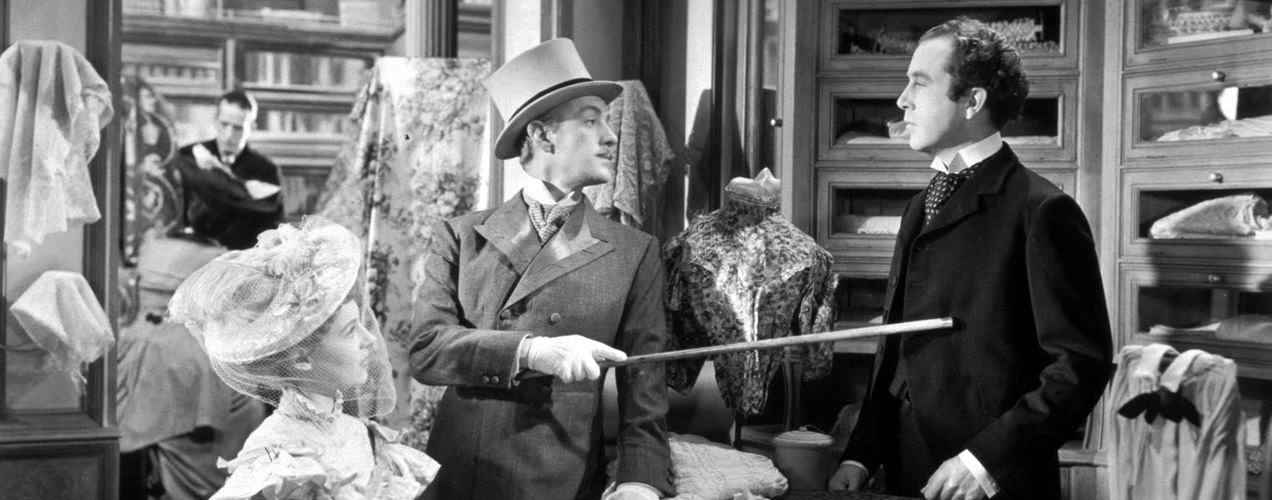
Kind Hearts and Coronets
1949 / Robert Hamer > As a pleasantly told story of lineage-based revenge, Kind Hearts and Coronets is chockful of smile-enducing comedic moments that point towards the brilliant, charismatic performance of star Dennis Price and the multiple personas of Obi-Wan Kenobi. Wait, what? To be specific, Alec Guinness plays eight different roles in the Ascoyne family tree that’s the target of Price’s ascension to dukeship, and each is played with hilarious aplomb. It’s a well-made dark comedy, though I can’t help but think that the straightforward manner of its storytelling holds it back from being a far better film. The story is purposefully predictable (as the many hints would indicate), but I find that a bit of a cop-out. Had Hamer insisted on a more novel approach to the film’s progression, it wouldn’t simply be an issue of “Who’s next?”

